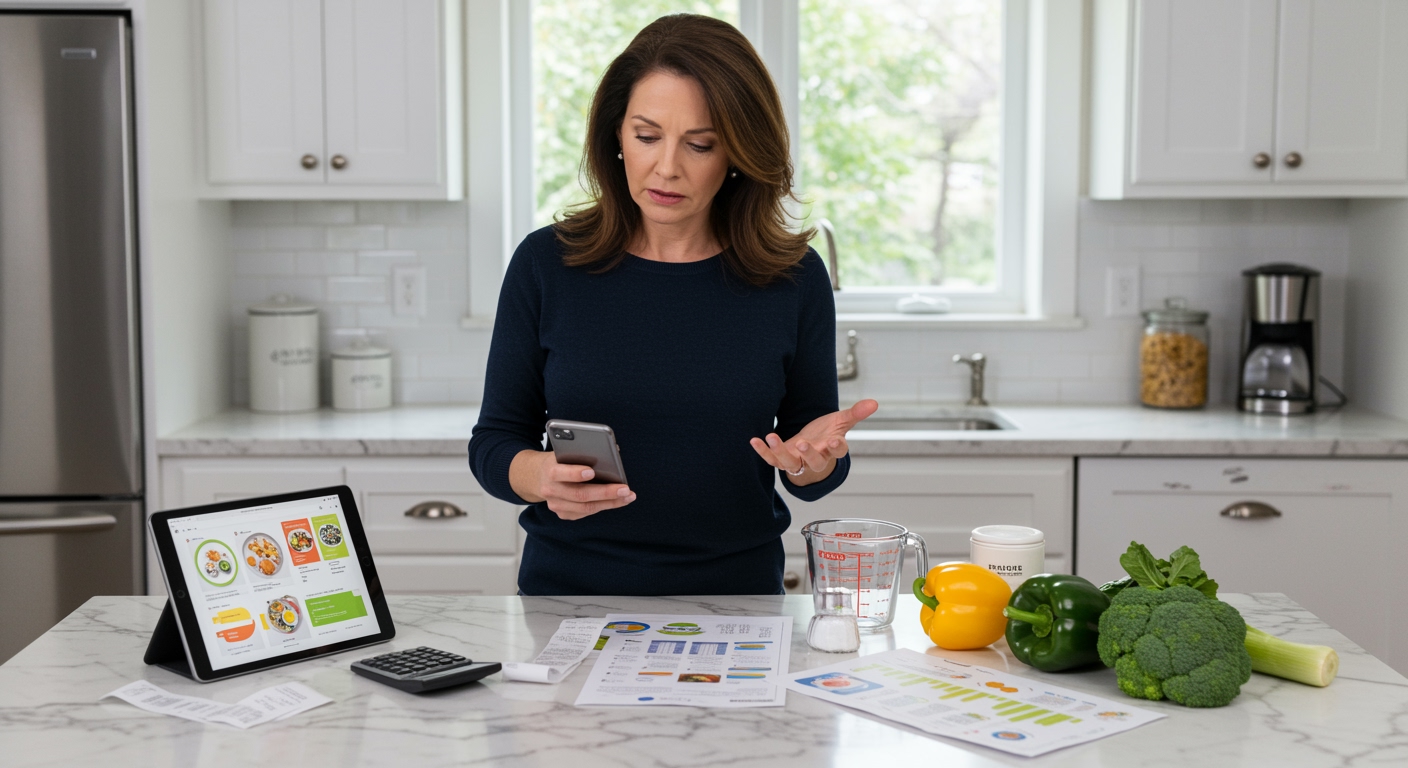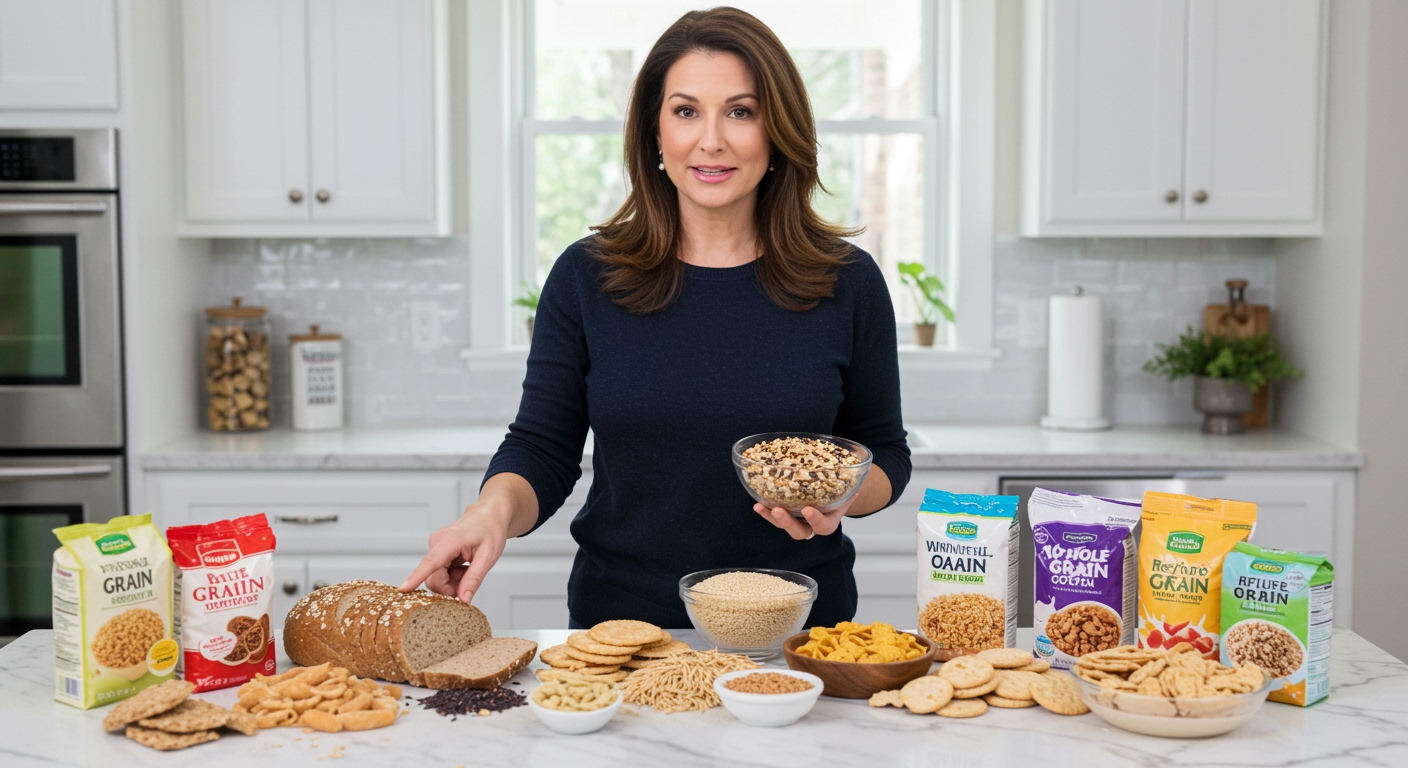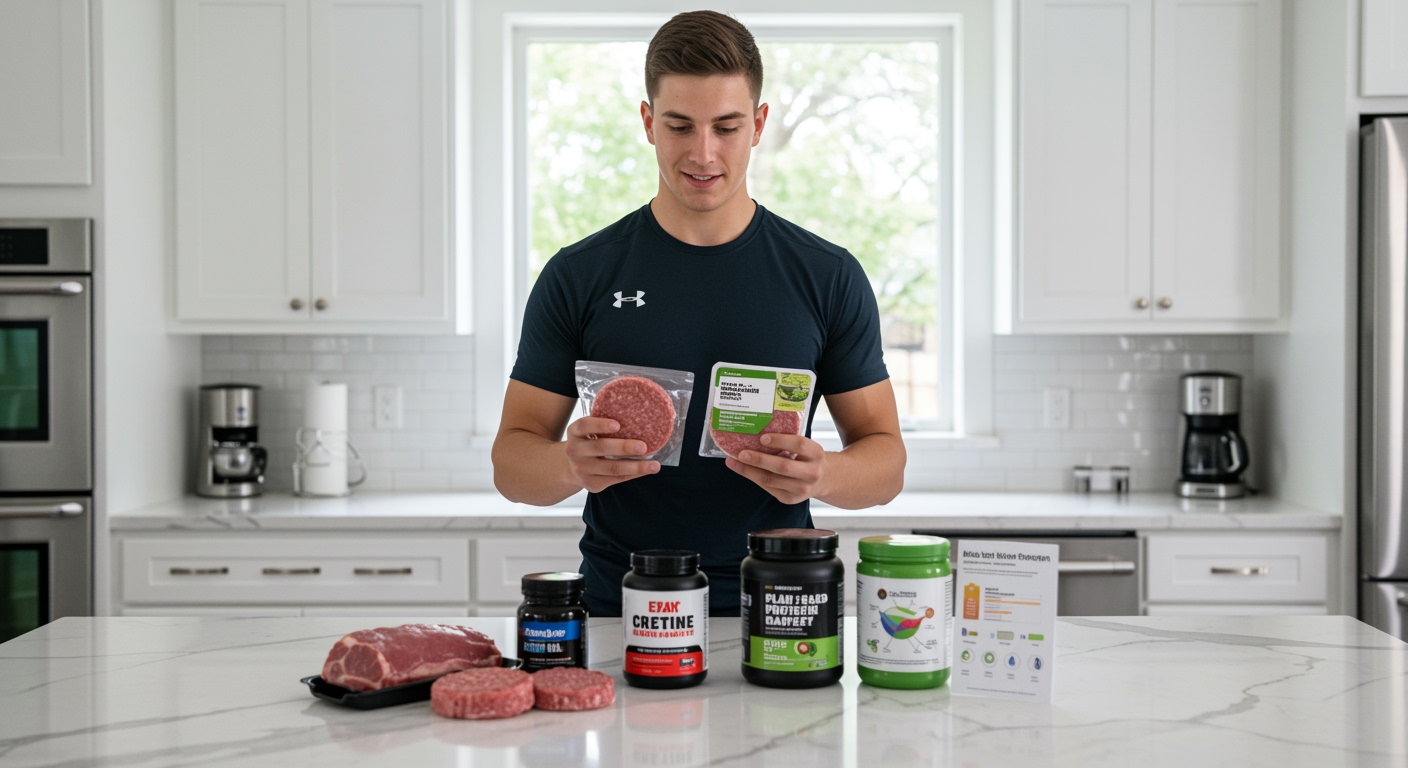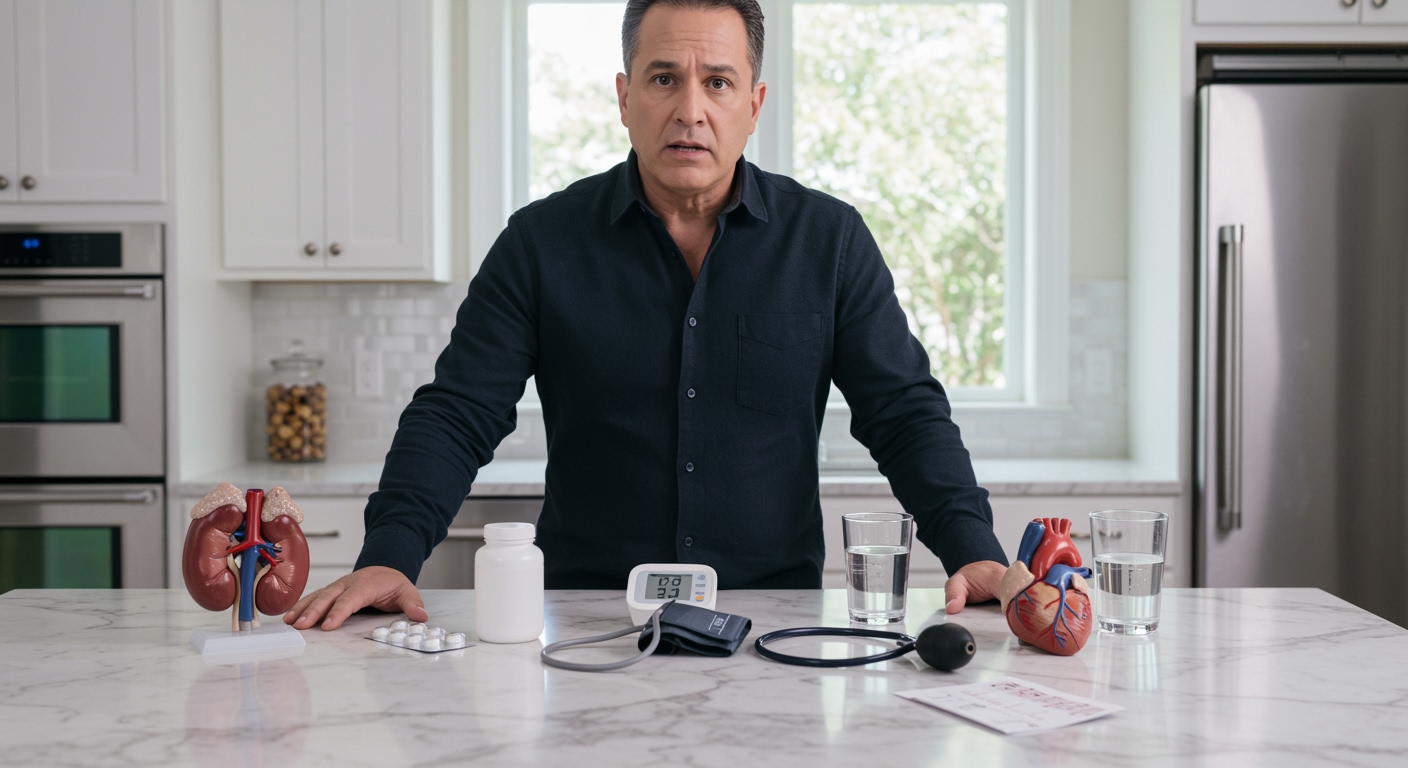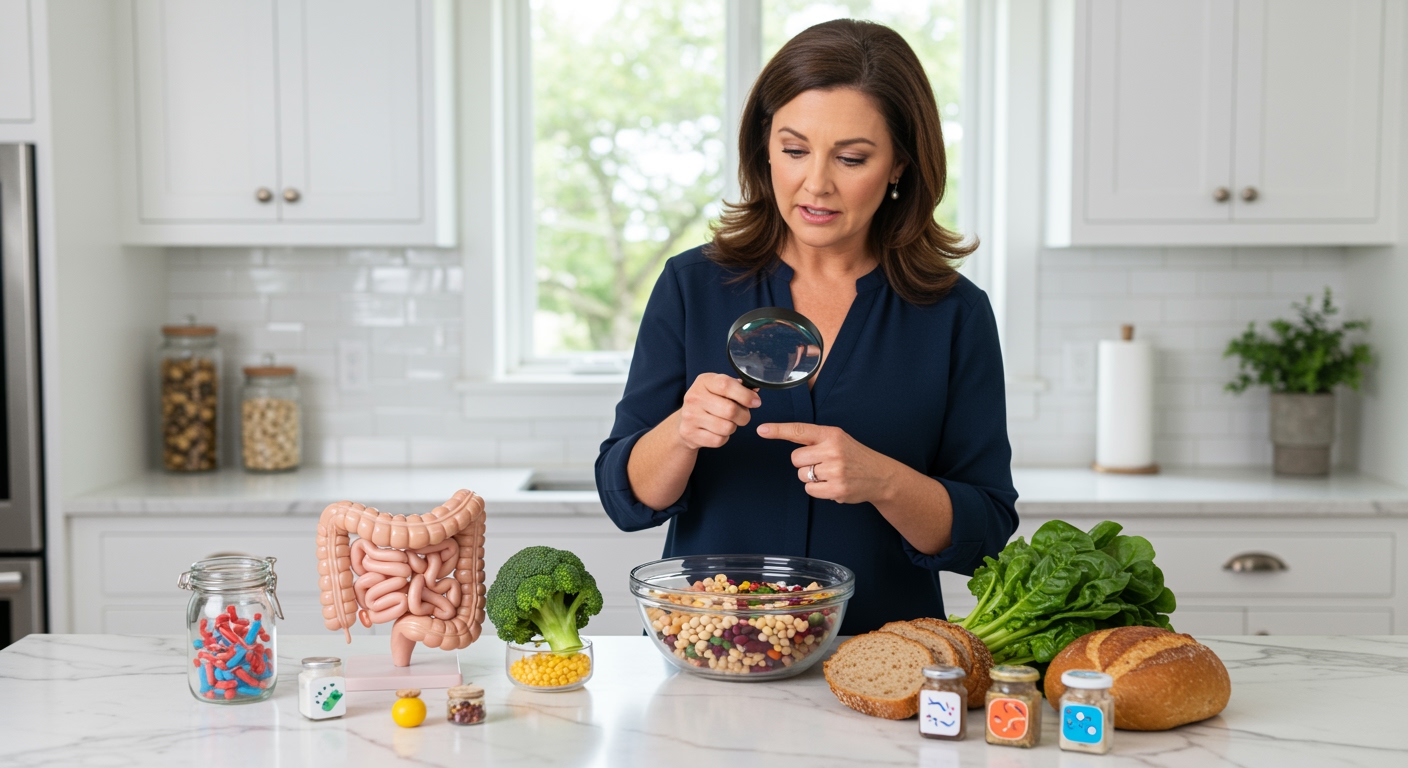✪ Key Highlight: AI meal planners are failing users with dangerous ingredient errors and budget mismatches that dietitians warn could harm health.
Introduction
People everywhere are turning to artificial intelligence for quick meal planning solutions, but the results are leaving many frustrated and potentially at risk.
Social media forums are flooding with complaints about AI meal planners that ignore budgets, make dangerous ingredient mistakes, and provide generic advice that fails real-world needs.
Hi, I’m Abdur, your nutrition coach, and today I’m going to analyze the growing concerns about AI meal planning tools and why experts are warning people to be extremely cautious when using these digital assistants for their dietary needs.
Why Are AI Meal Planners Failing Users So Badly?
The promise of AI meal planning sounds perfect: quick, personalized meal plans that fit your budget and preferences.
However, real users are discovering that these tools often ignore budget constraints completely, even when specifically instructed to consider financial limitations.
One frustrated user reported that ChatGPT simply repeated the same expensive suggestions and shuffled ingredients around without making any meaningful changes to reduce costs.
This pattern reveals a fundamental problem: AI systems lack the contextual understanding needed to balance multiple real-world constraints simultaneously.
The algorithms can generate meal ideas, but they cannot truly comprehend the practical challenges of grocery shopping on a tight budget or finding affordable alternatives in different geographic locations.
✪ Fact: AI meal planners often suggest ingredients that cost 3-4 times more than budget-friendly alternatives without offering substitutions.
What Dangerous Mistakes Are AI Tools Making?
Dietitians are reporting serious measurement errors in AI-generated meal plans that could pose health risks if followed blindly.
Research has documented cases where AI systems suggest four tablespoons of salt instead of teaspoons, which could be extremely dangerous for people with hypertension or heart conditions.
Other common errors include confusing grams with milligrams for supplements and vitamins, potentially leading to toxic overdoses or ineffective underdoses.
AI tools also struggle with accurate calorie estimation from food photos, often missing crucial details about cooking methods, portion sizes, and hidden ingredients.
The systems frequently fail to account for bioavailability differences between nutrients from whole foods versus processed alternatives, leading to nutritionally inadequate meal plans.
These measurement errors occur because AI systems lack the practical kitchen experience that human nutrition professionals develop through years of hands-on meal preparation and client consultation.
✪ Pro Tip: Always double-check AI-suggested measurements against reliable nutrition databases before preparing any meal.
Why Cannot AI Replace Professional Nutrition Advice?
Patricia Kolesa, a registered dietitian, explains that AI meal planning only addresses one piece of the nutrition puzzle while ignoring critical factors that determine success.
Professional nutrition counseling considers activity levels, stress management, eating behaviors, and psychological relationships with food that AI cannot assess or address.
Violeta Morris, another nutrition expert, warns that AI tools fall dangerously short when creating meal plans for people with medical conditions like diabetes or hypertension.
These individuals require personalized clinical recommendations based on their medical history, current medications, and specific nutrient targets that only qualified healthcare providers can determine.
AI systems cannot interpret laboratory results, medication interactions, or individual metabolic responses that significantly impact nutritional needs and food choices.
The generic nature of AI recommendations often leads to burnout and plan abandonment because they fail to address the realistic lifestyle changes needed for long-term success.
✪ Note: People with chronic diseases should never rely solely on AI meal planning without consulting their healthcare team first.
What Does Recent Research Say About AI Accuracy?
A January 2025 study published in Nutrients found that AI-driven chatbots can create meal plans with good dietary quality and variety in controlled testing environments.
The research showed that AI-generated diet plans for cardiac patients achieved over 75 percent compliance with established dietary guidelines when evaluated by medical professionals.
Some advanced AI systems, like the PROTEIN AI Advisor, demonstrated over 90 percent accuracy in nutrient recommendations across different user demographics during laboratory testing.
However, researchers emphasize that these promising results come with significant limitations that affect real-world application and user safety.
Studies published in Frontiers in Nutrition highlight that even the most sophisticated AI systems need more extensive real-world testing and improved food databases to offer truly reliable advice.
The controlled laboratory conditions used in research studies cannot replicate the complex variables that people face in their daily lives, including budget constraints, food availability, cultural preferences, and time limitations.
✪ Fact: Laboratory AI testing conditions rarely match the complexity of real-world meal planning challenges that users face daily.
How Should You Use AI Meal Planning Tools Safely?
Nutrition experts recommend treating AI meal plans as rough drafts or inspiration rather than final, actionable advice that you follow without verification.
Always cross-reference AI suggestions with established nutrition databases and verified sources before making any significant dietary changes or purchases.
Use AI tools that are built on verified data foundations rather than purely generative systems that may hallucinate nutritional information or create dangerous combinations.
Check all measurements, ingredients, and cooking instructions against reliable culinary sources to catch potentially dangerous errors before meal preparation.
Consult with your healthcare team before following any AI-generated meal plan, especially if you have medical conditions, allergies, or specific nutritional requirements.
Remember that AI cannot replace the personalized guidance and ongoing support that comes from working with qualified nutrition professionals who understand your unique circumstances.
✪ Pro Tip: Start with AI suggestions but always verify ingredients, measurements, and nutritional claims through trusted professional sources.
The Bottom Line
AI meal planning tools can provide helpful inspiration and basic structure, but they cannot replace the expertise, personalization, and safety that comes from working with qualified nutrition professionals.
Technology should enhance human expertise, not replace the critical thinking and personalized care that your health deserves.
I would love to hear about your experiences with AI meal planning tools or any questions you have about creating safe, effective meal plans that actually work for your lifestyle and budget in the comments below.
References
At NutritionCrown, we use quality and credible sources to ensure our content is accurate and trustworthy. Below are the sources referenced in creating this article:
- Food Bible: Dietitian Stark Warning Rise People AI Meal Planning
- American Heart Association: AI Can Serve Up Ideas for Healthy Meals in a Snap
- Julie Nutrition: Pros and Cons AI Nutrition Dietetics
- PMC National Center for Biotechnology Information: AI Meal Planning Research Study
- Frontiers in Nutrition: AI Nutrition Planning Limitations Study
